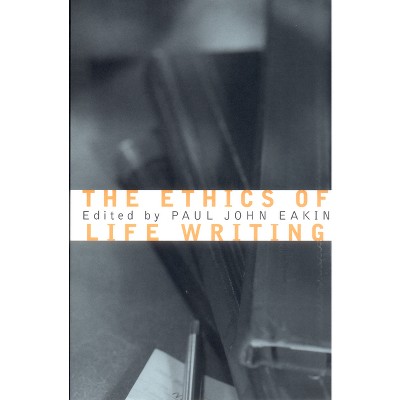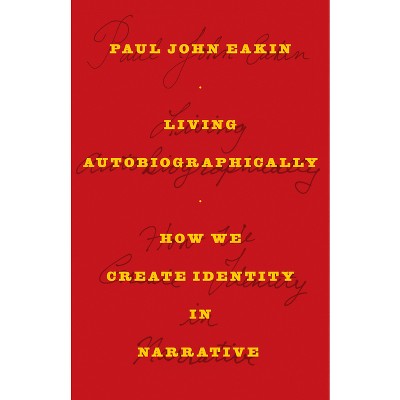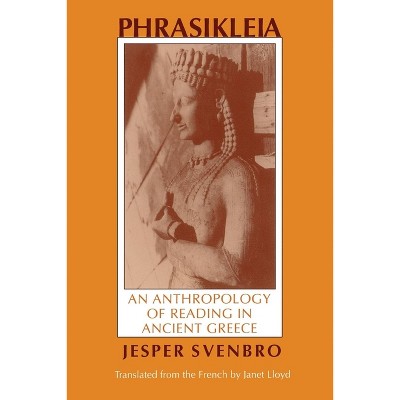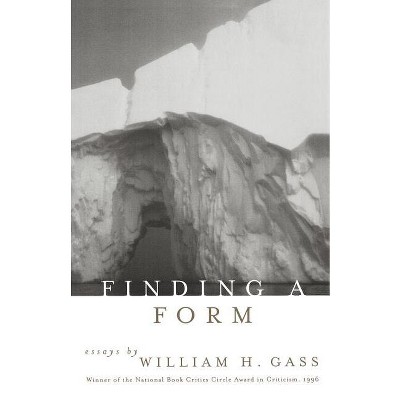Sponsored

How Our Lives Become Stories - by Paul John Eakin (Paperback)
In Stock
Sponsored
About this item
Highlights
- The popularity of such books as Frank McCourt's Angela's Ashes, Mary Karr's The Liars' Club, and Kathryn Harrison's controversial The Kiss, has led columnists to call ours "the age of memoir.
- About the Author: Paul John Eakin is Ruth N. Halls Professor Emeritus of English at Indiana University.
- 224 Pages
- Literary Criticism, Books & Reading
Description
About the Book
Informed by literary, scientific, and experiential concerns, Eakins enhances our knowledge of the complex forces that shape identity, and confronts the equally complex problems that arise when we write about who we think we are.
Book Synopsis
The popularity of such books as Frank McCourt's Angela's Ashes, Mary Karr's The Liars' Club, and Kathryn Harrison's controversial The Kiss, has led columnists to call ours "the age of memoir." And while some critics have derided the explosion of memoir as exhibitionistic and self-aggrandizing, literary theorists are now beginning to look seriously at this profusion of autobiographical literature. Informed by literary, scientific, and experiential concerns, How Our Lives Become Stories enhances knowledge of the complex forces that shape identity, and confronts the equally complex problems that arise when we write about who we think we are.
Using life writings as examples--including works by Christa Wolf, Art Spiegelman, Oliver Sacks, Henry Louis Gates, Melanie Thernstrom, and Philip Roth--Paul John Eakin draws on the latest research in neurology, cognitive science, memory studies, developmental psychology, and related fields to rethink the very nature of self-representation. After showing how the experience of living in one's body shapes one's identity, he explores relational and narrative modes of being, emphasizing social sources of identity, and demonstrating that the self and the story of the self are constantly evolving in relation to others. Eakin concludes by engaging the ethical issues raised by the conflict between the authorial impulse to life writing and a traditional, privacy-based ethics that such writings often violate.
Review Quotes
In How Our Lives Become Stories, Paul John Eakin explains why he prefers 'to think of self less as an entity and more as a kind of awareness in process.'... Eakin makes the ethics of reading integral to his project.... Eakin attends to those who are repelled by the 'urge to confess' and he talks about telling all as a cultural imperative that may, for example, be costly to the families of memoirists despite the therapeutic value such confessions might have. The ethics of privacy, the fact of relational lives, and the moral strictures that shadow autobiographical tellings bring Eakin to ask, 'What is right and fair?'.
-- "Canadian Literature"In this intriguing book, Paul John Eakin problematizes the notion of autobiography as 'the story of the self' and argues that in the act of narration one is engaged in a process of making a self.... How Our Lives Become Stories is a concise and engaging synopsis of the state of the art for anyone interested in the subject.
-- "Modern Fiction Studies"This fascinating new book... offers an engaging introduction to identity and narrative.... This is a well-written, timely, and progressive book--a surprisingly rare mix.
-- "Virginia Quarterly Review"When we write about our lives, the complex work of constructing the story is intertwined with all that constitutes the process of identity formation. In this book, Eakin expertly guides us through the thorny terrain of research in neurology, developmental psychology, and memory theory and revisits philosophy and literary theory. By the end of the journey, we have a far richer understanding of how individuals construct their lives and how they tell the story of that construction, as well as a sense of the dynamic interplay between the two processes.
-- "Literature and Medicine"About the Author
Paul John Eakin is Ruth N. Halls Professor Emeritus of English at Indiana University. He is also the author of The New England Girl: Cultural Ideals in Hawthorne, Stowe, Howells, and James; Fictions in Autobiography: Studies in the Art of Self-Invention; and Touching the World: Reference in Autobiography. He is the editor of The Ethics of Life Writing, also from Cornell; On Autobiography by Philippe Lejeune, and American Autobiography: Retrospect and Prospect.





